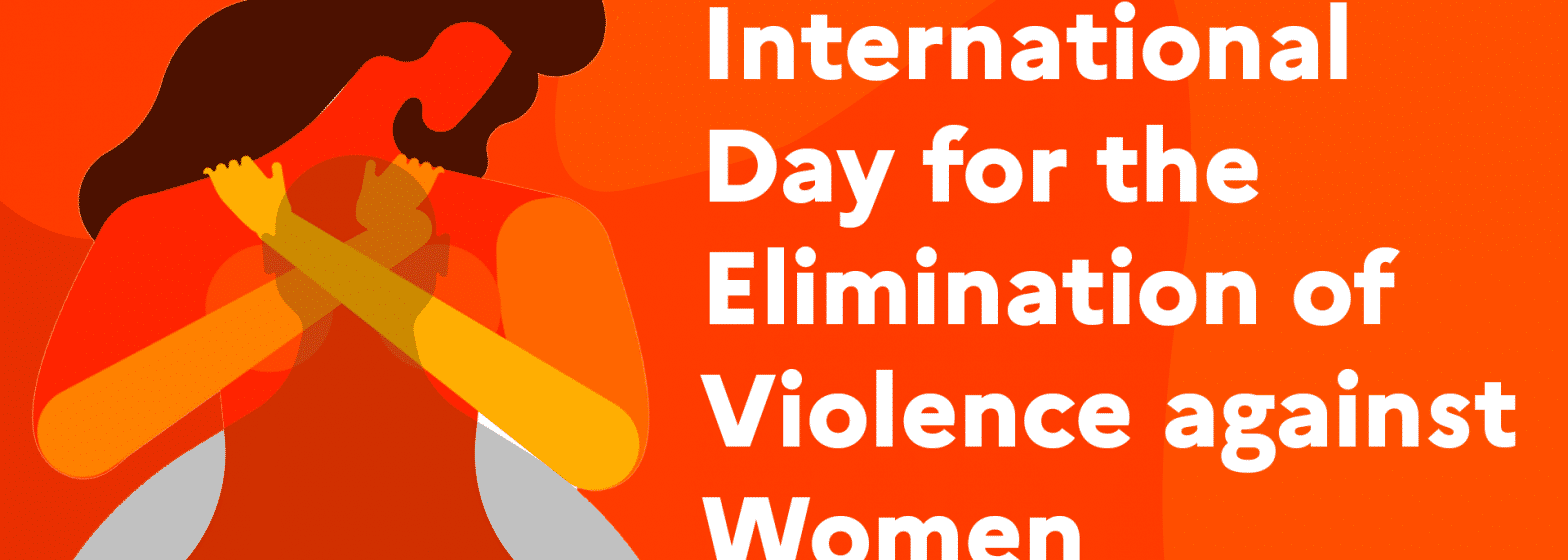Show Violence Against Women the Red Card
25 November 2020
Today, the 25th of November, marks International Day for the Elimination of Violence against Women. Since the outbreak of COVID-19, emerging data and reports have shown that all types of violence against women and girls, particularly domestic violence, have intensified. Violence against women and girls is one of the most widespread, persistent and devastating human rights violations in our world today remains largely unreported due to the impunity, silence, stigma and shame surrounding it.
With almost one in three women worldwide having experienced violence at some point in their lifetime, domestic violence has devastating impact on the lives of so many within society. 30% of women around the world have been raped, beaten, forced to act or abused at least once in their lives.
Every day, adolescent girls worldwide experience inequity and violations to their human rights. These include limited access to education, gender-based and sexual violence, early and forced marriage, human trafficking, as well as unpaid and forced labour.
This must stop. One of the first things to do is to break the silence and the stigma around the topic. This is why organizations such as the FIFA and the Seria A have running campaigns targeted at Violence against Women and Girls.
“Un Rosso Alla Violenza”
Earlier this weekend the Serie A raised awareness on the topic of violence against women and girls with their yearly Un Rossa Alla Violenza campaign. As part of this campaign, players in the Serie A play with a red face paint on their face. Among the players that showed their support were Zlatan Ibrahimovic and Gianluigi Buffon. Prior to matches, several players such as Juventus centre-back Matthijs De Ligt and Lazio midfielder Luis Alberto posted pictures of themselves and their partners, both with the red mark – complete with the hashtag ‘UnRossoAllaViolenza’.
The red stripe is the symbol used for the movement, driven by Italian humanitarian organisation WeWorld Onlus, the players’ association and the Lega Serie A – and so players and referees in the top tier had the mark across their cheek in this weekend’s fixtures.

FIFA’s #SafeHome campaign
Today FIFA also announced that they have renewed their #SafeHome campaign. This campaign is a joined effort between the FIFA, the World Health Organization (WHO), the European Commission and the European Parliament Sports Group. They have joined forces to raise awareness about the risk of domestic violence and call for an end to violence against women and children. Speaking on the renewed campaign, Gianni Infantino, FIFA President said:
“Violence has no place in our society, and sports and football are no exception. FIFA is fully committed to continuing our work with leading international organisations to help end violence, by using football as a platform to raise awareness on this and other key issues facing society today.”
Helena Dalli, EU Commissioner for Equality, said: “Violence against women and girls is a violation of human rights, and has no place in the European Union, or anywhere else in the world. This pandemic is a test for humanity. It has led to heightened exposure of women and children to domestic violence. We must eradicate this shadow pandemic. The EU is committed to working incessantly with its partners to prevent and combat violence against women. We must step up, our efforts to achieve gender equality and eradicate violence against women and children.”
“We all have a duty to speak up to protect women’s rights and fight any form of violence and this is particularly important during the current circumstances, with confinement often increasing the risk of domestic abuse. Let’s harness the power of sport to raise awareness of this issue and strive to put an end to violence and abuse.”
Mariya Gabriel, EU Commissioner for Innovation, Research, Culture, Education and Youth.
The campaign is aimed at the general public and decision makers (including recommendations to governments) to not only raise their awareness of the risks, but also what actions they can take to prevent and mitigate these risks. The campaign is being published on various FIFA digital channels, with #SafeHome also being supported with multimedia toolkits for the 211 FIFA member associations and for various media agencies to help facilitate additional localisation and to further amplify the message worldwide.
Read more on FIFA’s #SafeHome campaign here.






